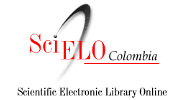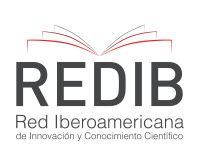Mothers' knowledge on optimal breastfeeding behaviors
DOI:
https://doi.org/10.18597/rcog.606Keywords:
mothers, knowledge, breastfeeding, health-education, health-promotionAbstract
Objective: To explore the knowledge on breast-feeding best practices in the postpartum mothers at the Social Security of Popayán, Colombia. To determine sub-groups and profiles of mothers according to their degree of knowledge about breastfeeding.
Design: Descriptive study.
Context: Level II Center of attention of the Colombian Social Security.
Participants: 104 mothers interviewed consecutively in the postpartum period.
Main measurements: A questionnaire was developed to establish knowledge about breast-feeding practices of the post-delivery mothers from the 5 optimal conducts of breast-feeding promoted by the Wellstart, a promotional organization of the maternal breast-feeding. These conducts were constructed from studies in developing countries. A total of 5 questions for each optimal conduct were done. The cut off point in a scale 0 to 1 considered as acceptable was 0,6. A variable of knowledge defined like the average of the score observed in each one of the 5 conducts was considered. Homogenous groups of mothers with a profile given by: age, socioeconomic stratum, parity, marital status, schooling, present grandmother, information on breast-feeding, and work was established. The tendency of the scores obtained according to this profile was observed.
Results: 20,2% of the sample was lower than the acceptable score. The average knowledge score was 0,73 ± 0,176 (1SD). The low knowledge appeared in the fourth optimal conduct (gradual supplementation), average of 0,68. ± 0,17 (1SD) and the high one in the first (immediate breast-feeding after the birth) with an average of 0,80 ± 0,19 (1SD). The degree of the maternal knowledge according to the profiles was significant (Wilcoxon trend test value p < 0,0001).
Conclusions: Although the level of knowledge was acceptable, the study establishes the necessity of an educational program to reinforce conducts on breast-feeding, mainly in the gradual supplementation to complementary feeding. The mothers who need this intervention are those at younger age, unmarried or in free union, primiparas, with low levels of socioeconomic stratum and schooling. Also it is necessary to include the grandmothers in the program.
Author Biographies
Mario Delgado Noguera
Juan José Orellana
References
American Academy of Pediatrics. Work Group on Breastfeeding. Breastfeeding and the use of human milk. Pediatrics 1997;100(6):1035-9.
A warm chain for breastfeeding (editorial). Lancet 1994; 344(8932):1239-41.
Victora GC, Smith PG, Vaughan JP, Nobre LC, Lombardi C, Teixeira AM, et al. Evidence for protection by breast-feeding against infant deaths from infectious diseases in Brazil. Lancet 1987;2:319-22.
Rodriguez Garcia R, Schaefer LA. Nuevos conceptos de lactancia, su promoción y la educación de los profesionales de la salud. Bol Oficina Sanit Panam 1991;111(1):1-15.
Susin L, Giugliani ER, Kummer SC, Maciel M, Simon C, da Silveira LC. Does parental breastfeeding knowledge increase breastfeeding rates? Birth 1999;26(3):149-56.
Manoff Group, Wellstart international. A guide to Qualitative Research for Improving Breastfeeding Practices. Washington; 1996.
Wellstart international. Apoyo comunitario a la lactancia materna: manual de planificación. Washington; 1996.
UNICEF, ICBF, Ministerio de Salud. Plan Decenal para la promoción y apoyo a la lactancia materna. Santafé de Bogotá, Colombia; 1998.
Carrasquilla G, Osorno J, Samper B, Soto A, Vázquez C. Lactancia materna en instituciones de salud de grandes ciudades colombianas. Cali: FES; 1992.
PROFAMILIA. Salud Sexual y Reproductiva: Encuesta Nacional de Demografía y Salud. Bogotá; Octubre, 2000.
Delgado M, Hebel E, Orellana JJ, Ríos E. Lactancia en menores de 6 meses en Popayán, Colombia. Pediatría 2000;35(4):336-46.
Sikorski J, Renfrew MJ, Pandoria S, Wade A. Support for breastfeeding mothers (Cochrane Review). In: The Cochrane Library: Oxford; 2002. Issue 1.
Bautista L. Factores asociados al inicio de la lactancia materna en mujeres Dominicanas. Rev Panam Salud Publica 1997;1(3):200-7.
Tognetti J. Evaluating breastfeeding promotion programmes. In: Jellife DB, Jellife EFP. Programmes to promote breastfeeding. New York: Oxford University Press; 1988. p. 405-19.
Caballero CA, Valderrama M, Cleves A, Romero MA. Impacto de la educación en la lactancia materna sobre la cultura y la nutrición en Bosa, Santafé de Bogotá. Rev Asoc Col Diet Nutric 1999;1(2).
Gutiérrez A, Barbosa D, González R, Martínez O. Nivel de conocimiento sobre lactancia materna. Rev Cubana Enfermer 2001;17(1)42-6.
Forsyth J, Ongston SA, Clark A, Florey C, Howie PW. Relation between early introduction of solid food to infants and their weight and illnesses during the first two years of life. BMJ 1993;306:1572-6.
Akre J, editor. Alimentación infantil: Bases fisiológicas. Guatemala: OPS/OMS/INCAP; 1992. p. 68.
La Revista-El Espectador, Colombia, 2002 Sept 1.
Scattena T, Rotter N. Aleitamento materno e suplementacao alimentar. Bol Oficina Sanit Panam 1989; 106(2):108-16.
Howard FM, Howard CR, Weitzman M. The physician as advertiser: the unintentional discouragement of breastfeeding. Obstet Gynecol 1993;81:1048-51.
Pérez Escamilla R Breast-feeding patterns in nine Latin American and Caribbean countries. Bull Pan Am Health Organ 1993;27(1):32-42.
Grossman LK, Harter C, Hasbrouk C. Testing mothers' knowledge of breastfeeding: instrument development and implementation and correlation with infant feeding decision. J Pediatr Perinat Nutr 1990;2:43-63.
Kramer MS, Chalmers B, Hodnett ED, Sevkovskaya Z, Dzikovich I, Shapiro S, et al. Promotion of Breastfeeding Intervention Trial (PROBIT): a randomized trial in the Republic of Belarus. JAMA 2001;285:413-20.
Taddei JA, Westphal MF, Venancio S, Bogus C, Souza S. Breastfeeding training for health professionals and resultant changes in breastfeeding duration. Sao Paulo Med J 2000;118:185-91.
Morrow AL, Guerrero ML, Shults J, Calva JJ, Lutter C, Bravo J, et al. Efficacy of home-based peer counselling to promote exclusive breastfeeding: a randomized controlled trial. Lancet 1999;353:1226-31.
Hauck YL, Dimmock JE. Evaluation of an information booklet on breastfeeding duration: a clinical trial. J Adv Nurs 1994;20(5):836-43.
How to Cite
Downloads
Downloads
Published
Issue
Section
License
Copyright (c) 2016 Revista Colombiana de Obstetricia y Ginecología

This work is licensed under a Creative Commons Attribution-NonCommercial-NoDerivatives 4.0 International License.
| Article metrics | |
|---|---|
| Abstract views | |
| Galley vies | |
| PDF Views | |
| HTML views | |
| Other views | |
















